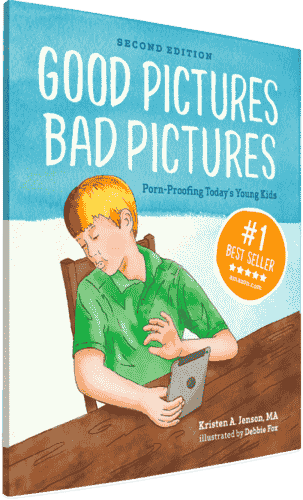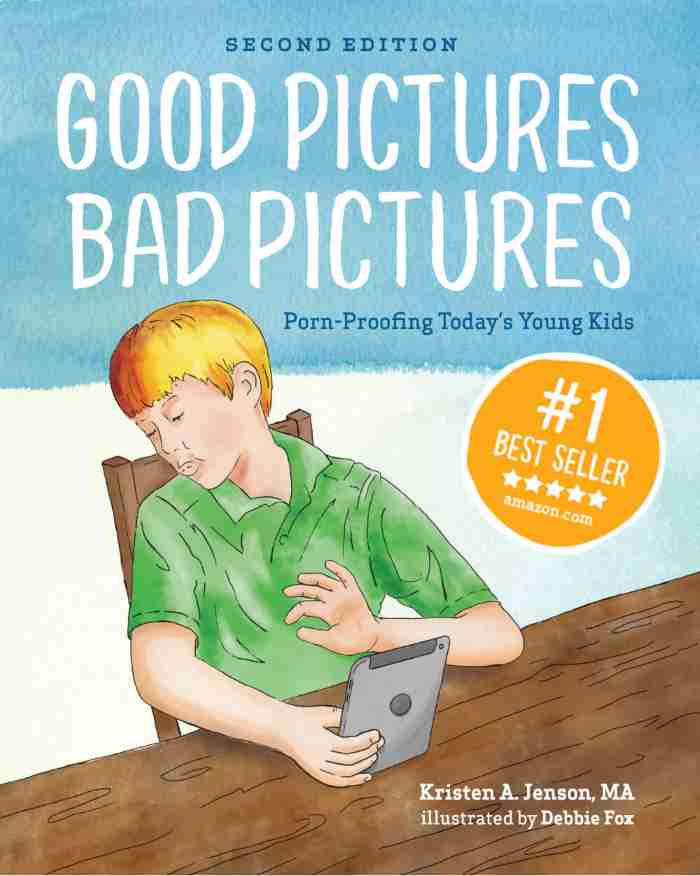.webp)
.webp)
3 Back to School Secrets for Porn-Immune Kids
This article was originally published on August 16, 2016 and updated on March 10, 2023.
Did you know that most kids go back to school unprepared? They may have fancy new clothes, cool new backpacks and a ton of new school supplies, but they're not equipped with an internal filter!
As mobile devices flourish, the risk for young kids to be exposed to pornography skyrockets, even at school. So don't let your young students go back to school unsafe and unprepared to recognize and reject pornography.
.webp)
According to a Common Sense Media report:
- 41% of surveyed teens who admitted to consuming pornography reported accessing it during school hours.
- Among these respondents, 44% acknowledged using school devices to view pornography.
- The report revealed that a significant majority of participants, including 15% who saw it before the age of 11, had their first encounter with pornography at the age of 13 or younger.
One mom, Lydia, told us about how her daughters dealt with pornography exposure at school in the 3rd and 4th grades!
Another parent told us her 5th grade son saw pornography on the school librarian’s computer. Yet another shared about porn spam popping up on her daughter’s elementary school project in Google docs.
Related: Parent Alert! Porn Spam on Your Kid's Google Drive?! 3 Things You Need to Know Now
And it happens to even younger kids.
Here’s a story one mom sent to me about an innocent kindergartner who got on a school bus to ride home. A third-grader approached her, held up a smartphone and said, “Look at this!” What this shocked five year-old girl saw was hardcore pornography! This incident happened in a middle-class neighborhood in Boise, Idaho, but it’s going on everywhere.
How does this little girl react? Will she tell her parents? Will she be curious and look for more? Much of that depends on what she’s been taught and how well she’s been prepared.
As your kids go back to school, make sure they are packing an internal filter!
Related: Why Kids Need an Internal Filter
Here are three ways you can help your kids protect themselves when talking to your kid about pornography:
#1: Define pornography—don’t assume kids know what it is
I know this sounds basic, but even if kids hear the word pornography, they won’t know what it means unless you define it for them. Think about it. If you had never learned what orthography is, you would need a definition. (BTW, it's the study of spelling!)
Therapist and author Jill Manning, PhD relates the experience of a dad who took his 13-year-old son to a presentation about the effects of pornography. On the drive home, his son turned to him and asked, “So what is pornography, anyway?” Even after an hour-long presentation, even after being exposed to it while doing homework, this boy had not made the connection. (What’s the Big Deal About Pornography? A Guide for the Internet Generation, pp 1-2.)
Dr. Manning advises:
Being clear on what pornography is and how to recognize it is the first step to protecting ourselves.
For more help, check out the read-aloud book Good Pictures Bad Pictures. It portrays a mom and dad defining pornography to their child in a way that has been proven to be comfortable for both parents and kids.
Pornography is dangerous for kids, but kids won't know what they should reject (and why) if no one teaches them. Don't send your child to school without helping them understand what type of images they need to look away from.
Related: How to Talk to Kids about Porn: Research Reveals 5 Obstacles to Overcome
[[CTA]]
#2: Ask your kids to tell you if they ever see it
For whatever reason, kids often don’t tell their parents when they’ve been exposed to pornography.
That means parents need to specifically ask their kids to tell them that same day if they see it.
Jill Manning, PhD, tells about her own unsettling exposure to a centerfold while playing at a friend’s home when she was eight. She immediately called her mom and asked to come home, but she never told a soul.
When I consider the kinds of images young people today encounter upon their first exposure to pornography, I shudder to think what would have happened to me if I had seen something more graphic…A pornography problem often starts with an innocent curiosity about something seen or heard—and then it can quickly lead to a twisted appetite for more graphic and harmful images. (What’s the Big Deal about Pornography? A Guide for the Internet Generation, pp. 12-13)
For more ideas on getting your kids to tell you when they’ve been exposed to porn, check out 3 Reasons Kids Keep (Dangerous) Secrets.
Note: Teach your kids to STOP and ask you first before they google a new term! As your kids go back to school, remind them often that they can tell you or ask you anything! In fact, let your kids know that if they hear a term or word they don’t know, you’ll be happy to tell them what it means. So many kids encounter porn because they google a term they hear at school. Obviously, it’s a lot safer if you look it up online than if they do!
Related: How to Talk to Kids About Pornography
#3: After school, ask your kids what they’ve seen on the internet that day
No nagging. Just bring it up in conversation. You might even share something you’ve seen or heard about online.
“Hey, I saw the most amazing reel on Instagram today. Aunt Shelly shared it with me. You’ll have to see it! What did you see online today?”
Today, a child’s “real” life and their “virtual” life are not separate--they combine into one world--an often confusing world.
It’s helpful to remember that young kids are still learning to navigate their world. They don’t know all the rules yet. They don’t know how to respond to the many new situations they face as they go back to school. Especially ones in their online neighborhood that are embarrassing and troubling (and potentially dangerous).
So coach them. Remind your kids that they can and should come and tell you about anything that embarrasses or upsets them. Or makes them curious.
As you prepare your kids to go back to school, make sure they pack an internal filter to help them reject pornography, no matter where they might see it.
Related: 6 Mistakes Parents Make When They Learn Their Kid is Watching Porn
.webp)


Good Pictures Bad Pictures
"I really like the no-shame approach the author takes. It's so much more than just 'don't watch or look at porn.' It gave my children a real understanding about the brain and its natural response to pornography, how it can affect you if you look at it, and how to be prepared when you do come across it (since, let's face it... it's gonna happen at some point)." -Amazon Review by D.O.
.webp)
.webp)





